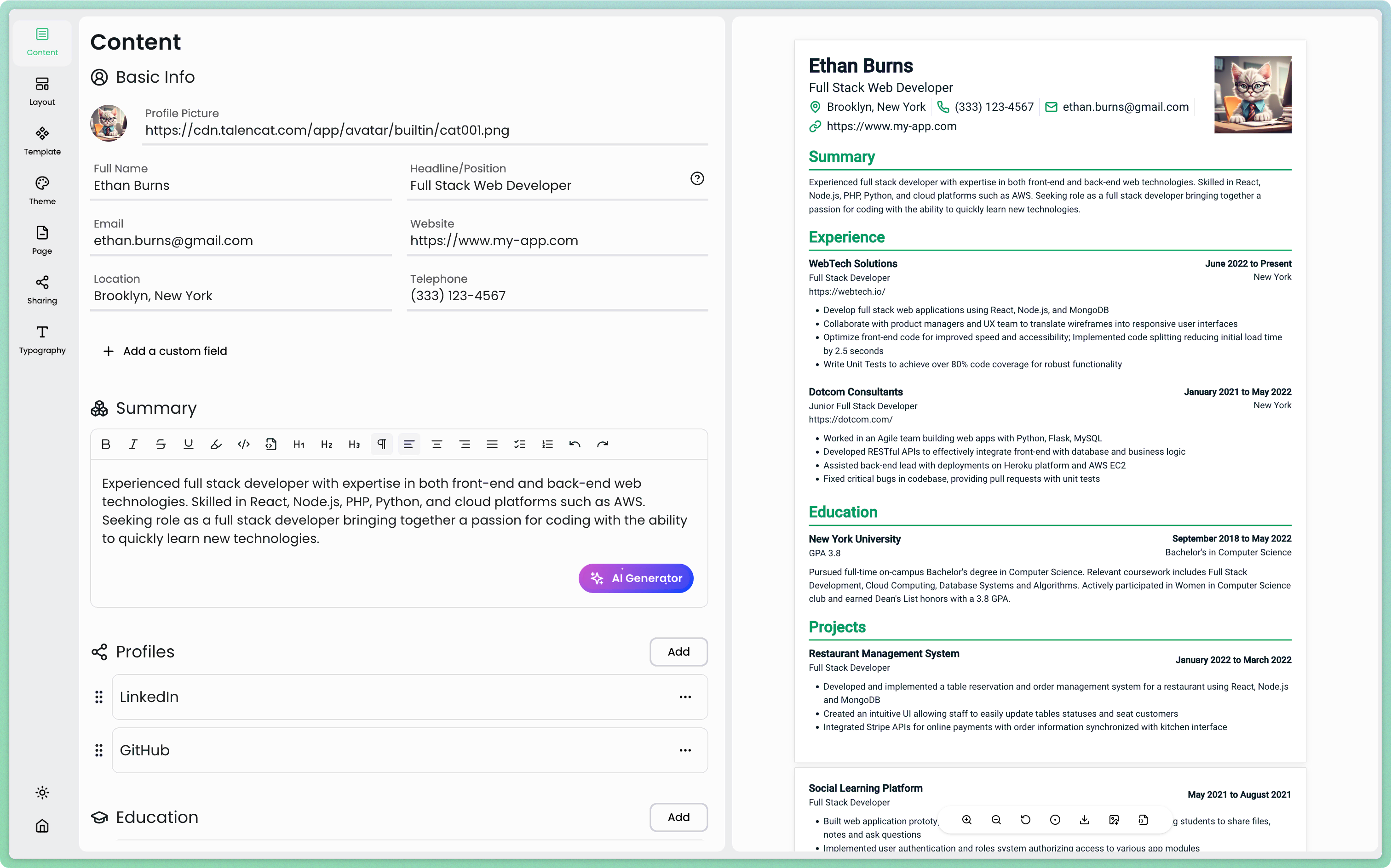The Future Farmers of America (FFA) organization plays a crucial role in developing the next generation of agricultural leaders. One of the most significant aspects of this development is the process of selecting chapter officers. These student leaders are responsible for guiding their local FFA chapters, organizing events, and representing their peers. The interview process for these positions is a critical step in identifying candidates who possess the necessary skills, passion, and vision to lead effectively.
Introduction to FFA Chapter Officer Interviews
FFA chapter officer interviews are designed to assess candidates' leadership potential, communication skills, and commitment to the organization's values. These interviews serve as a platform for aspiring leaders to showcase their abilities and articulate their vision for the chapter's future.
Importance of FFA Chapter Officer Roles
Chapter officers are the backbone of local FFA organizations. They are responsible for:
- Planning and executing chapter activities and events
- Representing the chapter at regional and state levels
- Motivating and engaging fellow members
- Promoting agricultural education and awareness in their communities
The roles these officers play are instrumental in shaping the experiences of FFA members and contributing to the overall success of the chapter.
Overview of the Interview Process
The FFA chapter officer interview process typically involves several stages:
- Application submission
- Initial screening
- Individual interviews
- Group activities or presentations
- Final selection
Each stage is designed to evaluate different aspects of a candidate's qualifications and potential for leadership.
Common FFA Chapter Officer Interview Questions
Preparing for an FFA chapter officer interview requires understanding the types of questions that may be asked. Here are some common categories of questions and examples of what you might encounter:
Personal Background and Motivation
What inspired you to run for an FFA officer position?
Sample Question: "What motivated you to pursue a leadership role in FFA?"
Expert Answer: "My journey in FFA has been transformative, and I've witnessed firsthand the impact that strong leadership can have on our chapter and community. The mentorship I received from previous officers inspired me to step up and contribute my skills to help our chapter grow. I believe in the FFA mission of developing future agricultural leaders, and I'm excited about the opportunity to play a more significant role in shaping that future for our members."
How has your FFA experience shaped your leadership skills?
Sample Question: "Can you provide an example of how your involvement in FFA has developed your leadership abilities?"
Expert Answer: "Participating in FFA has been instrumental in developing my leadership skills. For instance, when I led our chapter's community service project last year, I learned valuable lessons in project management, delegation, and motivating a team. We faced challenges with scheduling and resource allocation, but by communicating effectively and staying adaptable, we successfully completed the project. This experience taught me the importance of clear communication, teamwork, and perseverance in leadership."
Leadership and Teamwork
What does leadership mean to you?
Sample Question: "How would you define effective leadership in the context of FFA?"
Expert Answer: "To me, effective leadership in FFA means being a servant leader who empowers others to reach their full potential. It involves setting a positive example, actively listening to members' ideas and concerns, and working collaboratively to achieve our chapter's goals. A good leader in FFA should inspire others, promote inclusivity, and be committed to the personal and professional growth of all members."
Can you describe a difficult situation you faced as a leader and how you handled it?
Sample Question: "Tell us about a time when you had to make a tough decision as a leader. How did you approach it?"
Expert Answer: "Last year, as the committee chair for our annual fundraiser, I faced a situation where we had conflicting ideas about the event's theme. To resolve this, I organized a meeting where everyone could voice their opinions. I facilitated a respectful discussion, ensuring all perspectives were heard. We then used a voting system to make the final decision. This approach not only resolved the conflict but also strengthened our team's unity and taught me the importance of inclusive decision-making in leadership."
How should the officer team address conflicts among members?
Sample Question: "What steps would you take to resolve disagreements within the officer team?"
Expert Answer: "Addressing conflicts among members requires a proactive and constructive approach. First, I would encourage open communication, creating a safe space for all parties to express their concerns. Then, I'd facilitate a discussion to identify the root cause of the conflict. It's crucial to remain impartial and focus on finding a solution that aligns with our chapter's goals. If necessary, I would involve our advisor for guidance. The key is to view conflicts as opportunities for growth and to strengthen our team's problem-solving skills."
Goals and Vision
What are your goals for the FFA chapter if elected?
Sample Question: "What specific objectives would you set for our chapter in the coming year?"
Expert Answer: "If elected, my primary goals would be to increase member engagement, expand our community outreach, and enhance our chapter's leadership development programs. Specifically, I aim to implement a mentorship program pairing experienced members with newcomers, organize monthly agricultural awareness events in our community, and create more opportunities for members to participate in leadership workshops and competitions. These goals are designed to strengthen our chapter internally while also increasing our positive impact on the community."
How do you plan to contribute to the personal growth of chapter members?
Sample Question: "What strategies would you employ to support the individual development of FFA members?"
Expert Answer: "To contribute to the personal growth of our members, I plan to implement a multi-faceted approach. This includes organizing skill-building workshops tailored to different interests within agriculture, creating a chapter-wide goal-setting program where members can track their progress, and expanding opportunities for public speaking and presentation skills development. Additionally, I want to establish a feedback system where members can regularly reflect on their growth and receive constructive input from peers and advisors. By focusing on individual strengths and areas for improvement, we can ensure each member has a personalized growth plan within our chapter."
Member Engagement and Outreach
How would you encourage member participation in chapter activities?
Sample Question: "What ideas do you have for increasing member involvement in FFA events?"
Expert Answer: "To boost member participation, I would focus on creating diverse and engaging activities that cater to various interests. This includes organizing hands-on workshops, inviting inspiring guest speakers from the agricultural industry, and implementing a point system that rewards active participation. I'd also leverage social media to keep members informed and excited about upcoming events. Additionally, I plan to conduct regular surveys to understand members' interests and tailor our activities accordingly. By making our events more relevant and exciting, we can naturally increase participation and enthusiasm among our members."
What strategies would you implement to advocate for agriculture and the FFA?
Sample Question: "How would you promote FFA and agricultural awareness in our community?"
Expert Answer: "To advocate for agriculture and FFA, I would implement a multi-pronged approach. First, I'd organize a series of community outreach events, such as agricultural fairs and farm-to-table demonstrations, to educate the public about the importance of agriculture. Second, I'd establish partnerships with local schools to introduce FFA programs at younger grade levels. Additionally, I'd utilize social media platforms to share success stories of our members and highlight the diverse career opportunities in agriculture. Lastly, I'd work on creating a student ambassador program where our members can represent FFA at community events and local government meetings, further increasing our visibility and impact."

Behavioral Interview Questions
Behavioral questions are designed to assess how candidates have handled specific situations in the past, providing insight into their problem-solving skills and leadership style.
Understanding Your Approach to Challenges
Describe a time you faced a significant challenge and how you overcame it.
Sample Question: "Can you share an experience where you had to overcome a major obstacle in an FFA project?"
Expert Answer: "During our chapter's annual fundraiser last year, we faced a significant challenge when our venue canceled on us just two weeks before the event. As the event coordinator, I quickly assembled our team to brainstorm alternatives. We decided to pivot to a virtual format, which required completely redesigning our event. I delegated tasks, communicated constantly with our team and stakeholders, and worked tirelessly to adapt our plans. Despite the initial setback, we ended up reaching a wider audience and raising more funds than ever before. This experience taught me the value of flexibility, teamwork, and innovative thinking in the face of unexpected challenges."
How do you handle criticism and feedback?
Sample Question: "Tell us about a time when you received constructive criticism. How did you respond?"
Expert Answer: "I believe that constructive criticism is essential for personal growth. Last year, after presenting at a chapter meeting, my advisor pointed out that my presentation lacked specific data to support my points. Initially, I felt disappointed, but I quickly realized this was an opportunity to improve. I thanked my advisor for the feedback and asked for suggestions on how to incorporate data effectively. I then revised my presentation, adding relevant statistics and charts. This experience not only improved my public speaking skills but also taught me to appreciate and act on constructive feedback, viewing it as a valuable tool for continuous improvement."
Scenario-Based Questions
If a member is not fulfilling their duties, how would you address this issue?
Sample Question: "How would you handle a situation where a fellow officer is consistently missing meetings and not completing their tasks?"
Expert Answer: "In this situation, my first step would be to have a private, one-on-one conversation with the officer to understand the root cause of their behavior. I would approach this discussion with empathy, focusing on how we can work together to resolve any issues. If personal circumstances are affecting their performance, I'd work with them to find solutions or temporary support. If it's a matter of misunderstanding expectations, I'd clarify their roles and responsibilities. Should the issue persist, I would involve our chapter advisor to discuss next steps, always with the goal of supporting the officer while ensuring the chapter's needs are met. The key is to address the problem early, communicate clearly, and focus on finding a constructive solution."
How would you promote collaboration among the officer team?
Sample Question: "What strategies would you implement to foster a strong, cohesive officer team?"
Expert Answer: "To promote collaboration among the officer team, I would implement several strategies. First, I'd organize regular team-building activities to strengthen our relationships outside of official duties. This could include informal gatherings or participating in leadership workshops together. Second, I'd establish clear communication channels, such as weekly check-ins and a shared digital platform for project updates. Third, I'd encourage a culture of open feedback and idea-sharing, where every officer feels valued and heard. Lastly, I'd work on creating shared goals that require cross-functional cooperation, ensuring that we're all working towards common objectives. By fostering a supportive and inclusive environment, we can build a strong, unified team that effectively leads our chapter."
Preparing for the Interview
Thorough preparation is key to success in FFA chapter officer interviews. Here are some essential steps to help candidates put their best foot forward:
Researching FFA and Chapter Goals
Before the interview, candidates should:
- Review the FFA mission statement and core values
- Familiarize themselves with their chapter's history and recent achievements
- Understand current challenges and opportunities facing their local chapter and the broader agricultural community
This knowledge demonstrates commitment and helps candidates align their responses with organizational goals.
Practicing Common Interview Questions
Candidates should:
- Review and practice answering common interview questions
- Prepare specific examples that showcase their leadership experiences
- Practice articulating their vision for the chapter
Mock interviews with peers or mentors can be invaluable in building confidence and refining responses.
Tips for a Successful Interview
To make a strong impression during the interview:
- Dress professionally and appropriately for the occasion
- Arrive early to the interview location
- Bring a portfolio showcasing FFA achievements and leadership experiences
- Maintain good eye contact and positive body language
- Listen carefully to questions and provide thoughtful, concise answers
- Show enthusiasm for the role and the organization
- Be prepared to ask insightful questions about the position and chapter goals
Remember, authenticity is key. The interview is an opportunity to showcase genuine passion for FFA and agriculture.
TalenCat: Ace Your FFA Chapter Officer Interview Questions
Preparing for an FFA Chapter Officer interview can be challenging, but with the help of TalenCat CV Maker, you can navigate potential interview questions with confidence. This online resume builder offers an innovative "Interview Assistant" feature that can help you anticipate and prepare for questions specific to your FFA leadership experience.
Here's how to use TalenCat CV Maker to prepare for your FFA Chapter Officer interview:
Step 1: Log in to TalenCat CV Maker and create or upload your resume, highlighting your FFA experiences and leadership roles.
Step 2: Navigate to the "AI Assistant" section and select "Interview Assistant" from the left-side menu. This will prompt TalenCat's AI to analyze your resume content.

Step 3: Click "Analyze Now" to generate potential interview questions based on your FFA experiences and leadership roles mentioned in your resume.

Step 4: Review the generated questions and prepare your responses. These questions will be tailored to your specific FFA experiences, helping you anticipate what the interview panel might ask.
Step 5: Use the TalenCat CV Maker's editor to refine your resume further based on the questions generated, ensuring your resume highlights the key experiences and skills that align with potential interview topics.

By leveraging TalenCat CV Maker's AI-powered Interview Assistant, you can approach your FFA Chapter Officer interview with greater confidence and preparedness. This tool not only helps you create a standout resume but also equips you with the foresight to tackle challenging interview questions.
Remember, thorough preparation is key to success in any leadership role interview. With TalenCat CV Maker, you're not just creating a resume; you're building a comprehensive strategy for your FFA Chapter Officer interview success.
Conclusion
Recap of the Importance of FFA Chapter Officer Interviews
FFA chapter officer interviews are a crucial step in selecting the leaders who will guide local chapters towards success. These interviews not only assess candidates' qualifications but also provide valuable experience in professional communication and leadership articulation.
Encouragement for Candidates to Prepare Thoroughly
For aspiring FFA chapter officers, thorough preparation is essential. By understanding the interview process, practicing responses to common questions, and reflecting on personal experiences and goals, candidates can confidently showcase their potential as future agricultural leaders.
Remember, the journey of preparing for and participating in these interviews is itself a valuable learning experience. It offers an opportunity for personal growth, self-reflection, and the development of crucial leadership skills that will serve well beyond the FFA chapter.
As you prepare for your FFA chapter officer interview, approach it with enthusiasm, authenticity, and a genuine desire to contribute to your chapter's success. Your passion for agriculture and leadership, combined with thorough preparation, will shine through and set you on the path to making a significant impact in your FFA chapter and beyond.




